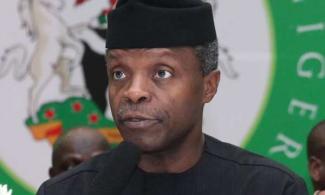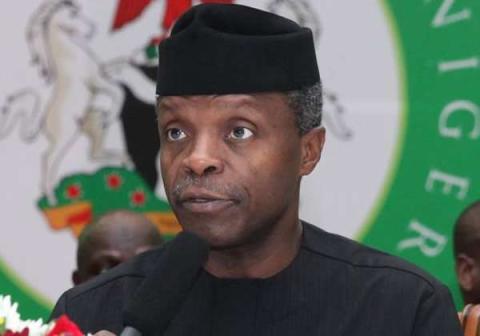
He maintained that, among other factors, “a friendly business environment engenders productivity” while ensuring that products and services meet the highest standards.
The Vice President of Nigeria, Yemi Osinbajo has said made-in-Nigeria products will not do well in Nigeria and abroad as long as they do not adhere to international quality standards.
He stated this at the opening session of the virtual ‘Open-Day with MSMEs’ organised by the Standards Organisation of Nigeria (SON), the News Agency of Nigeria reports.

A statement issued by his spokesman, Laolu Akande, quoted him as saying, “Improving product quality is integral to market entry and market share. Our failure to adhere to international standards for product quality will continue to limit the market acceptability of our products and pose the risk of rejection and non-acceptance of made-in-Nigeria products at home and abroad,” explained the vice president.
“We are fully aware that Nigeria’s aspirations for a highly competitive economy will remain unfulfilled if we do not create a business environment that is conducive for your businesses to thrive.”
Osinbajo further said improved quality is important as Nigeria sought to expand its exports to the rest of Africa in the African Continental Free Trade Area and the rest of the world.
He maintained that, among other factors, “a friendly business environment engenders productivity” while ensuring that products and services meet the highest standards.
“Further educate MSMEs on recent efforts to improve product standardisation, including the Nigeria National Standardisation Strategy (NNSS) document and the National Quality Policy document,” he urged SON.
The vice president added that the MSMEs accounted for approximately 48 per cent of Nigeria’s Gross Domestic Product (GDP).
He stressed that the MSMEs would continue to play a vital role in providing jobs and keeping the economy running, despite economic challenges heightened by the global COVID-19 pandemic.
According to him, the federal government supports MSMEs in the digital and creative sectors through collaboration with the African Development Bank on a $600 million programme on Investing in Digital and Creative Enterprises.
“These interventions will not be sustainable if a deliberate culture of ensuring compliance with global standards and regulations to attain quality benchmarks is not inculcated,” Osinbajo explained.
“SON, through its mandate as the national standards body, has the capacity to provide Nigerian MSMEs with the required support for the production of quality goods to make you competitive across Africa and globally.”